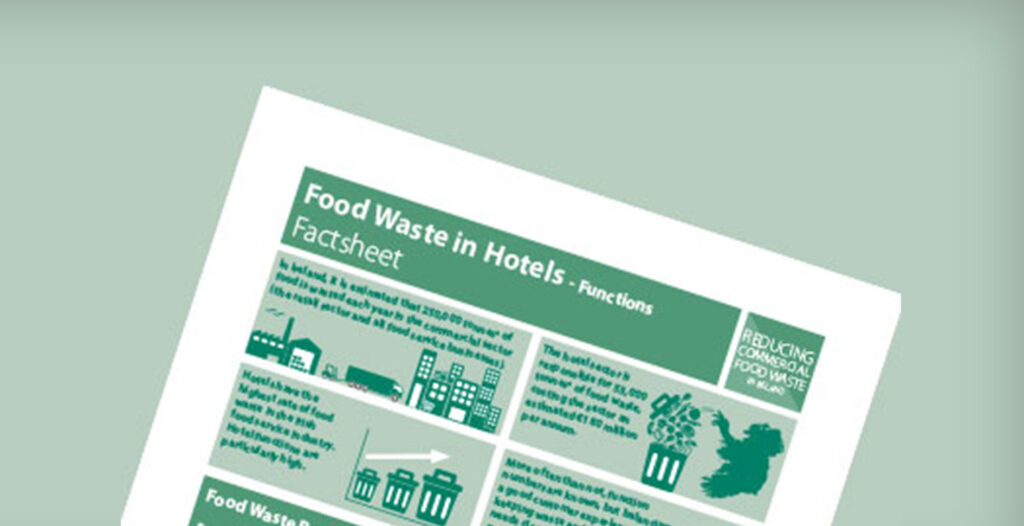The Clean Technology Centre has been commissioned to develop factsheets for the hospitality sector on how to prevent food waste, on water conservation, waste management and energy cost savings.
The factsheets are designed to raise awareness. They are short (mostly two pages each) and present a lot of information using graphics, infographics and focused text.
The following factsheets were produced:
- Food Waste in Hotels (Daily Service)
- Food Waste in Hotels (Functions)
- Food Waste in Full-Service Restaurants
- Food Waste in Quick-Service Restaurants
- Food Waste in Canteens
All these present detailed information on the scale of food waste from this sector; how much waste benchmarks; what types of food are most avoidable; and cost implications.
In another series of factsheets different sets of information are presented. These include:
- Food Waste Management: Factsheet for Hospitality
- Energy Cost Savings: Factsheet for Hospitality
- Waste Management: Factsheet for Hospitality
- Water Conservation: Factsheet for Hospitality
In these CTC has laid out the sources of waste in these topic areas, immediate cost saving actions (low hanging fruit), further actions to be taken, Grant aid opportunities (energy-related), success stories and useful links for further information.

